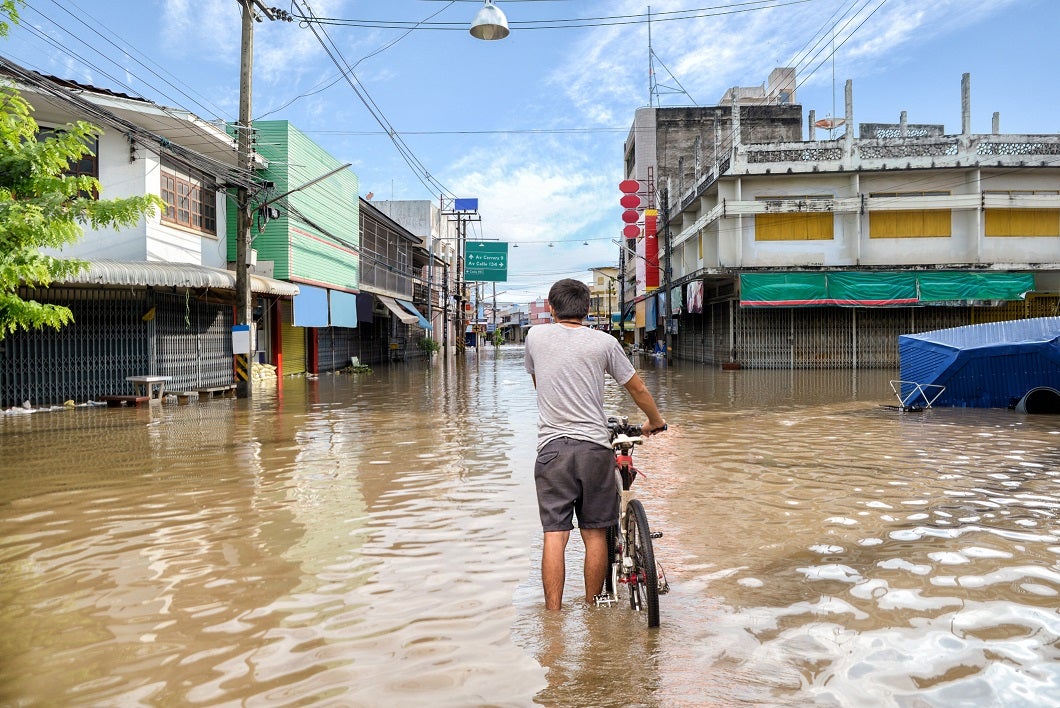Climate change threatens lives and economic development in Latin America and the Caribbean. We all heard the news; the earth is warming fast. Scientists said that a surge of heat compromised North America to Antarctica in early July. Tropical Storm Bret hit the eastern Caribbean islands, resulting in torrential rainfall, landslides, and flooding. Air quality broke new records on the East Coast due to Canadian wildfires. Given the region’s expansive geography and diverse weather, climate change affects the region differently. Arid areas are likely to become even dryer and wet areas are likely to receive even more precipitation, exacerbating disparities in the availability of water resources.
Poverty reduction and economic growth are at stake if we do not tackle climate change. The good news is we have solutions to accelerate a new era of economic growth that supports climate action and improves people’s lives.
Why should countries implement climate change policies and programs?
Comprehensive climate strategies can help governments develop roadmaps for implementing climate-resilience and net-zero goals and for aligning financial flows with countries’ international commitments.
- Policies that foster inclusive economic growth lead to poverty reduction, reducing vulnerability to climate change. Adapting and building climate resilience is more cost-effective than responding to disasters and actions to build climate resilience are essential for meeting other development needs. For instance, cash-transfer programs offer a social safety net against adverse events, including natural disasters. By making cash transfer programs responsive to shocks, which means that programs would automatically scale up payments and spread out to more people following a crisis, countries can institutionalize this approach. Governments can respond to the next pandemic, earthquake, or flood more quickly, systematically, efficiently, and transparently if money transfers are institutionalized.
- Decarbonization policies’ benefits include 1% additional economic growth and the creation of 15 million net new jobs by 2030. Countries need to act now to rapidly transition to a net-zero economy to avoid dangerous warming; the window opportunity is approaching to stabilize climate change. While many technical solutions are available, ramping up renewable energy is the most important option for achieving zero-carbon electricity. Costa Rica is a good example of a country that is getting more than 99% of its electricity from renewables.
- Diversifying and aligning financial flows will facilitate the adoption of climate policies. Financial flows from public and private sources need to be redirected and aligned with net-zero emissions and climate-resilient development goals. According to the long-term objectives of the Paris Agreement, the region would need to spend up to US$1.3 trillion year by 2030 on climate change targets, or between 7% and 19% of each country’s GDP. This will be necessary to achieve climate resilience and carbon neutrality in the region.
- Strengthening climate governance is critical to implementing climate policies. Climate change and climate policies will affect asset values, price volatility, fluctuations in the availability of inputs, and trade patterns. Government interventions are needed to lift the barriers that prevent the public and private sectors from investing in net-zero emissions and climate-resilient solutions. For example, The Regional Climate Change Platform of the Ministries of Economy and Finance strengthens regional dialogue on shared concerns in climate matters and facilitates the exchange of experiences in the development and implementation of climate policies with a fiscal and economic focus.
Translating theory into action: the Climate Change Sector Framework Document.
All 26 of the IDB’s borrowing member countries have signed the Paris Agreement and adopted the 17 Sustainable Development Goals, which means that the support for the climate change agenda is increasing and raising its ambition. As a strategic partner of the region, the IDB Group has published the Climate Change Sector Framework Document that orients the work that the Bank is doing in the climate change arena. It reflects important international agreements, particularly the Paris Agreement, the 2030 Sustainable Development Agenda, and the Sendai Framework for Disaster Risk Reduction. It identifies four lines of action that will guide the IDB Group in supporting countries to low-carbon, climate-resilient economies.


Leave a Reply